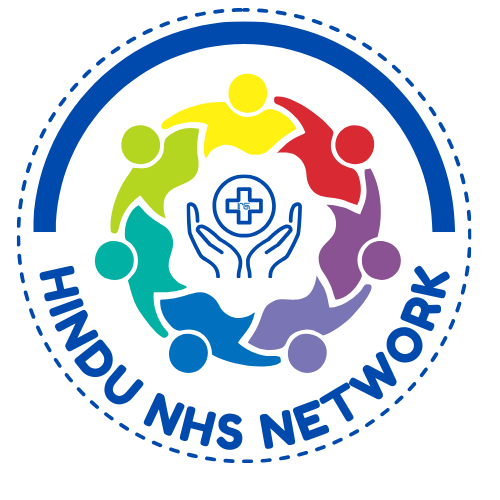Cultural education is a foundational pillar of the Hindu NHS Network’s (HNN) mission to foster a more inclusive, respectful, and compassionate NHS. In an increasingly multicultural healthcare landscape, the ability to understand and sensitively respond to patients’ cultural and spiritual needs is not just a matter of courtesy—it is a clinical necessity, an ethical imperative, and a legal responsibility. At HNN, we believe that cultural competence begins with cultural consciousness: the willingness to listen, learn, and honour the diverse traditions that shape how people understand health, healing, illness, and death.
Our approach to cultural education is grounded in the rich heritage of Sanātana Dharma (the eternal path), which encompasses not only religious belief but a way of living that integrates diet, family structure, moral duty (dharma), rituals, and holistic wellbeing. Through our educational programmes, we empower NHS professionals—from doctors and nurses to chaplains, porters, administrators, and senior leaders—to serve Hindu patients and staff with awareness, humility, and confidence. Cultural education is not about memorising customs—it is about cultivating empathy, breaking stereotypes, and enabling personalised care that respects the sacredness of human diversity.
HNN delivers cultural education through a variety of engaging formats, including interactive workshops, e-learning modules, Trust presentations, CPD-accredited webinars, and tailored induction sessions for new staff. These programmes cover essential topics such as:
Hindu beliefs about health, illness, karma, and healing
The role of Ayurveda, yoga, and prayer in health choices
Sacred rituals around birth, death, and end-of-life care
Fasting practices, vegetarianism, and hospital diet preferences
Gender dynamics, modesty, and touch in clinical settings
The impact of festivals like Diwali, Navratri, and Raksha Bandhan
Hindu perspectives on organ donation, fertility, and mental health
How to support Hindu staff during religious observances
Each training session is designed not only to inform but to transform—creating space for honest dialogue, reflection on unconscious bias, and co-creation of practical solutions within NHS teams. Our facilitators include Hindu healthcare professionals, spiritual advisors, cultural scholars, and chaplaincy experts who bring real-world insight and lived experience to every session. We use case studies, storytelling, group discussions, and visual aids to ensure that participants leave with actionable knowledge and greater cultural sensitivity.
HNN also collaborates with Equality, Diversity and Inclusion (EDI) teams, HR departments, and Clinical Governance groups to embed Hindu cultural awareness into policy-making, workforce development, and organisational culture. We support NHS Trusts in conducting faith literacy audits, adapting patient care pathways, and developing inclusive staff wellbeing strategies that reflect the cultural needs of Hindu employees. By doing so, we not only improve patient experience but also help reduce disparities in care outcomes, increase staff retention, and build stronger, more connected teams.
Cultural education is especially crucial in high-stakes clinical environments—such as ICU, maternity, oncology, mental health, palliative care, and paediatrics—where decisions made under pressure must still honour patient dignity. By training healthcare teams to understand why a family may insist on chanting mantras during the dying process, or why fasting patients may decline medication during certain times, we equip staff to handle complex situations with cultural intelligence, compassion, and respect.
Importantly, HNN’s vision of cultural education is not static. We continually update our content based on feedback from clinicians, chaplains, patients, and community leaders. We also welcome collaboration with medical schools, universities, and NHS Education Bodies to ensure that cultural education is embedded early in the training journey of future healthcare professionals.
In essence, our cultural education work is about building bridges—between tradition and modernity, between faith and evidence, and between healthcare systems and the communities they serve. By promoting understanding rather than assumption, and by inviting shared humanity over hierarchy, HNN helps the NHS become not only a place of treatment but a sanctuary of healing for all.
Copyright 2025 By Hindu NHS – Designed By Superchatpal






